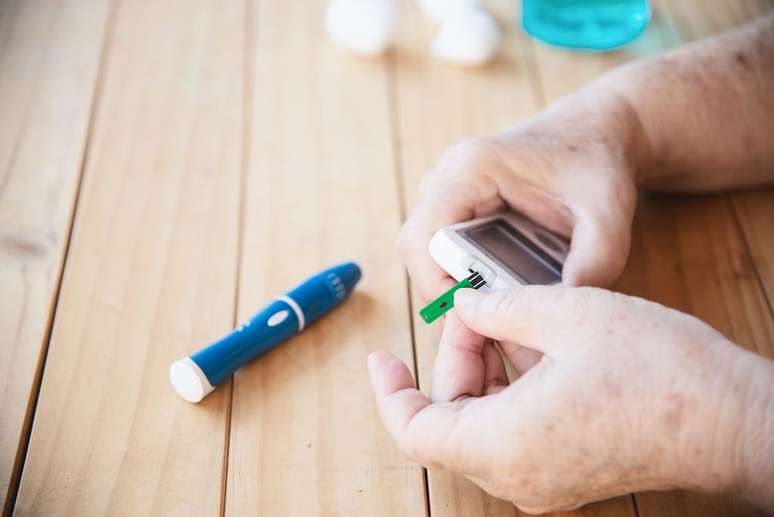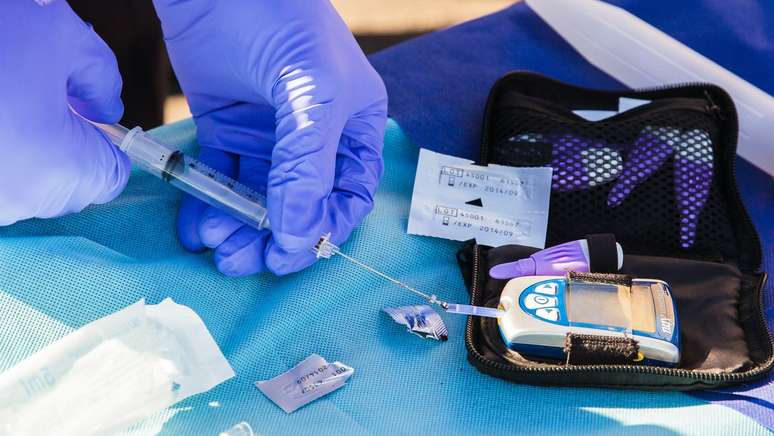An experimental stem cell treatment proved effective in treating a patient with type 2 diabetes who did not need to inject insulin for 3 years
In recent years, science has turned its attention to Possible cure for type 2 diabetes. Now, scientists in Shanghai have managed to cure a patient for the first time in history, through an experimental treatment involving pancreatic cell transplantation. Details of the case are available in the magazine Cell discovery.
Scientists have not revealed the identity of the patient at Shanghai Changzheng Hospital, but what is known is that he is 59 years old and has been living with type 2 diabetes for 25 years: he has not needed insulin injections for at least three years .
To work, doctors used mononuclear cells taken from the patient’s blood and reprogrammed them into stem cells.
Next, the team reconstructed the tissue from small groups of special cells in the pancreas (called pancreatic islets, responsible for producing insulin) in an artificial environment.
The report mentions that the patient’s pancreatic islets have lost their function since he underwent a kidney transplant. Therefore, he needed to take insulin every day.
Recovery of pancreatic function
The experimental treatment occurred in 2021, after which the patient was weaned from insulin and medications.
As the material reveals, the procedure helped to fully recover the functionality of the pancreatic islets, so the hope of the doctors involved is that this type of treatment can also prevent the progression of diabetic complications.

The next steps of the study include increasing the number of samples analyzed to draw definitive conclusions on the role of pancreatic islets and the achievement of glycemic goals.
“Future studies are needed to extend the application of stem cell-derived islet transplantation to other diabetes subtypes and to generate ready-to-use products to treat diabetes without the need for immunosuppression,” the study states.
Type 2 diabetes
Type 2 diabetes occurs when the body does not properly use the insulin it produces. Factors such as being overweight, a sedentary lifestyle, high triglycerides, hypertension and inadequate eating habits can have a direct influence.
According to the Brazilian Diabetes Society, there are currently more than 13 million in Brazil people with diabetes, which represents 6.9% of the national population. The Ministry of Health says that approximately 90% of diabetes patients in Brazil suffer from type 2 diabetes.
Symptoms of type 2 diabetes include constant hunger and thirst, tingling in the feet and hands, the urge to urinate repeatedly, frequent infections (bladder, kidney, and skin), wounds that take a long time to heal, and blurred vision.
Source: Cell discovery, Ministry of Health
Trends on Canaltech:
- Oropouche fever spreads in Brazil with more than 5 thousand cases
- Elon Musk’s Starlink will be investigated for monopoly in Brazil
- Can dengue mosquitoes transmit oropouche fever?
- How do I know if I have a fever if I don’t have a thermometer?
- AstraZeneca “admits” a rare side effect of the Covid-19 vaccine
- Meta announces the end of Workplace, the ‘Facebook of companies’
Source: Terra
Rose James is a Gossipify movie and series reviewer known for her in-depth analysis and unique perspective on the latest releases. With a background in film studies, she provides engaging and informative reviews, and keeps readers up to date with industry trends and emerging talents.



-to4mi28diwq8.jpg)



